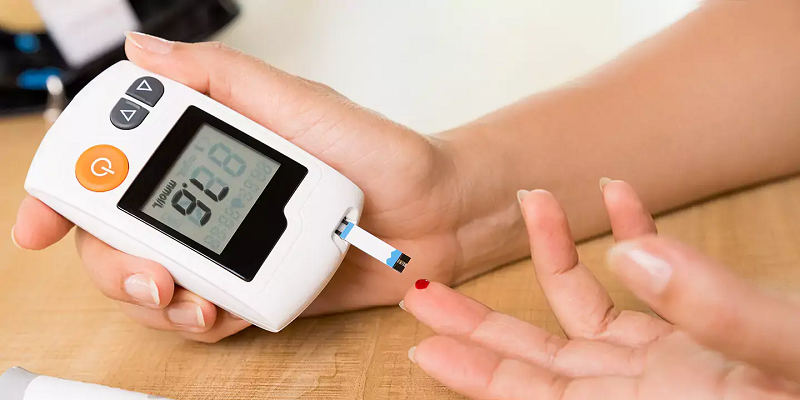Prostate cancer is a major health concern for men worldwide. Although genetics and age contribute to its development, there are preventive measures you can take to lower your risk. With the risk of prostate cancer increasing in men, it is the need of the hour to understand the lifestyle strategies that can help one lower the chances of developing prostate cancer.

Dr Sajjan Rajpurohit, Senior Director-Medical Oncology, at Max Super Speciality Hospital, Shalimar Bagh, says, “Before diving into prevention strategies, let’s first understand what prostate cancer is. Prostate cancer develops in the prostate gland, a small organ located below the bladder in men. It is one of the most common types of cancer among men, with various risk factors contributing to its development.”
“Prostate cancer typically develops in old age, and it is increasingly associated with urbanization. Anything related to urban living heightens the risk of prostate cancer. This cancer is more prevalent among people leading sedentary lifestyles and making poor dietary choices, such as consuming junk or fatty foods and avoiding exercise. Those who engage in these habits are at a higher risk of developing prostate cancer. To reduce this risk, one should incorporate regular exercise into their routine – any type of exercise will suffice” says,” Dr. Vinod Gore, Director – Department of Surgical Oncology and consultant cancer surgeon, Sahyadri Super Speciality Hospital, Deccan Gymkhana, Pune.
While one might contemplate the food choices one makes and how they affect prostate cancer, it is imperative to know that diet has a huge role to play. Dr Sajjan Rajpurohit says, “Your diet plays a crucial role in your overall health, including prostate health. To reduce your risk of prostate cancer, consider incorporating more fruits, vegetables, and lean proteins into your diet. These foods are rich in antioxidants and essential nutrients that can support a healthy prostate.”
He further added, “High consumption of red meat and processed foods has been linked to an increased risk of prostate cancer. Try to limit your intake of these foods and opt for healthier alternatives.”
Dr. Vinod Gore, points out, “Certain foods are believed to lower the risk of prostate cancer, including green leafy vegetables and red tomatoes, which contain lycopene. Other foods linked to reduced prostate cancer risk include soy and cruciferous vegetables like broccoli and cauliflower. Fruits, especially those with vibrant colors like mangoes, yellow papayas, apples, and grapes, are also associated with a decreased risk of prostate cancer.”
It is important to incorporate healthy dietary and exercise habits to reduce the risk of prostate cancer and other types of cancer. Hormonal changes in the body, especially about prostate and breast cancer, can be heavily influenced by one’s diet. Foods that contain high levels of fat can lead to an overproduction of hormones, which can increase the risk of developing these cancers. However, regular exercise can help regulate hormone production by decreasing body fat. Therefore, it is recommended to make exercise a regular part of your routine.
While these habits indirectly impact cancer risk, statistical data reveals that individuals who follow a balanced diet, exercise regularly, and eat healthily have a lower likelihood of developing any type of cancer, including prostate cancer.
TOP VIDEOS
- Selena Gomez Looks Like A Fresh Iris Flower In A Stunning Indian Designer Rahul Mishra's Creation
- Want Glowing Skin Like BLACKPINK's Rosé? WATCH To Know About Her Beauty Secrets That You Can Follow
- Esha Gupta's Squat Routine Is Getting Viral For Setting Major Fitness Goals
- Aishwarya Rai Bachchan Looks Straight Out Of Harry Potter Films In A Black Outfit At L'Oréal Event
- Sonam Kapoor Attends Paris Fashion Week In Valentino; Zendaya & Kendall Jenner Channel Inner Diva
Dr Sajjan Rajpurohit stated, “Smoking is a significant risk factor for various cancers, including prostate cancer. If you smoke, seek support and resources to quit this habit. Excessive alcohol consumption is associated with an increased risk of prostate cancer. If you choose to drink, do so in moderation.”
“The most effective method for preventing or early detection of prostate cancer is screening. Starting at the age of 45, individuals should undergo regular PSA (prostate-specific antigen) tests. These tests can detect prostate cancer at an early stage, enabling effective treatment. Thus, the key to managing prostate cancer effectively is regular screening, with a recommended annual PSA test starting at age 45,” says, Dr. Vinod Gore.
Photo Credits: Google










